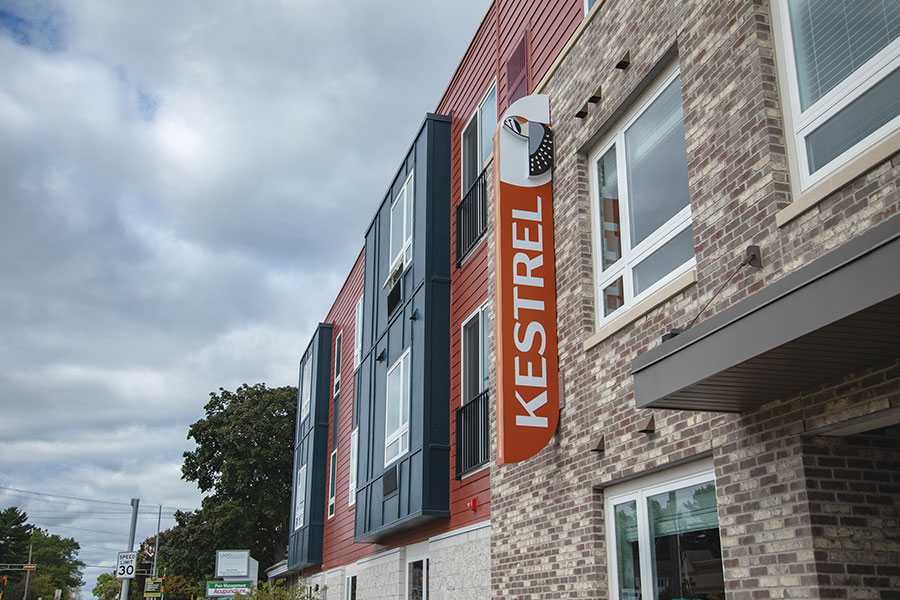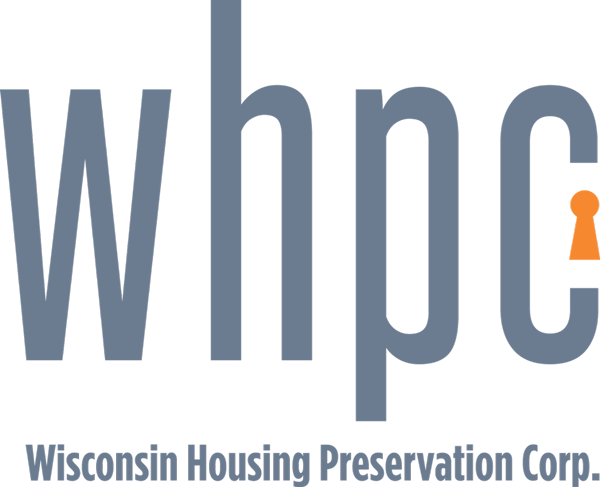Sustainability
During times of high inflation and economic uncertainty, energy costs are likely to continue to rise. WHPC is identifying opportunities to make sustainable upgrades to its portfolio and prioritize new development to increase energy efficiency, reduce utility expenditures, and reduce carbon emissions.
In 2020, WHPC formed an internal ‘Green Team’ to study the energy use at its properties and to look for ways to make buildings more efficient. Led by WHPC Assistant Vice President of Asset Management Rob Dicke, the team’s goal is to improve the operations of WHPC properties by reducing greenhouse gas emissions, lowering utility expenses, and making properties more comfortable for residents.
WHPC’s portfolio is comprised of more than 8,500 units throughout Wisconsin with building types ranging from duplexes to 16-story high-rises. Most properties are 40 or more years old.
Laying the Groundwork
First step was to understand the utility systems and energy consumption of the properties in its portfolio. WHPC hired Elevate Energy, a nationwide non-profit specializing in clean affordable energy with a focus on low-income communities, to assist WHPC with a planning grant application to the Wisconsin Public Service Commission (PSC) through the Energy Innovation Grant Program (EIGP). WHPC was awarded $99,000 in 2021 to fund Elevate’s work.
Next, Elevate and the WHPC team created a database of all WHPC properties identifying utility systems, fuel sources, energy costs and whether WHPC or the tenant pays for utilities. Elevate also collected data about the age and construction of the buildings and evaluated building structures for the potential to support solar panels.
In addition, Elevate provided data comparing properties with similar energy demands and delivery systems, identifying properties with high energy usage and charting per-unit usage. An in-depth energy assessment of the properties was conducted with recommendations for specific project upgrades.
The Green Team Roadmap
The second tool WHPC and Elevate proposed in the application to the PSC was an Energy Action Plan to be used to identify opportunities for improvements and best course of action. The information in the property database allowed decisions to be made about which properties would benefit from rehab based on age and performance of the energy systems. The plan will help the Green Team incorporate the latest energy system technology into new developments.
A Thought Leader in Sustainable Affordable Housing
The team made a commitment to the PSC to share the insights and knowledge gained with industry peer groups. Elevate and WHPC presented their results and the Action Plan at the annual WHEDA conference in September 2022 and the Wisconsin Council for Affordable Rural Housing conference in October 2022.
WHPC will share the tools created with their property management partners and publish data on WHPC’s website to assist other owners and managers of multifamily housing manage energy expenses. The team’s work on long term energy efficiency planning positions WHPC as a thought leader in sustainable affordable housing.
Planning to Implementation
Armed with the energy assessment data and Action Plan, WHPC and Elevate submitted grant applications to the EIGP in 2021, one from WHPC and another submitted by the City of Middleton on behalf of WHPC. Projects identified in the applications included installing solar panels and battery systems to generate and store renewable electricity at Lakeview Apartments in Middleton and Villa West in Green Bay. A second application was submitted to replace costly baseboard electric heaters with efficient air-source heat pumps and to update lighting to LEDs at River Grove Apartments in Black River Falls.
In April 2022 the PSC awarded WHPC all three grants, totaling $1.45 million in energy construction funding. The team anticipates starting this work in late 2022 and completing the upgrades in 2023.
Funding Sustainable Development
WHPC’s latest new development, Rise Madison, will be constructed utilizing the Federal Low Income Housing Tax Credit program and provide 245 units of much needed affordable housing. In addition to tax credits, WHPC applied for funding from the City of Madison that is only awarded to projects meeting specific green requirements.
As part of the application process, the development team worked with Focus on Energy, a statewide energy efficiency and renewable resource program, to perform an Energy Design Analysis of the project. The analysis demonstrated how energy enhancements could save energy cost and usage by at least 20% when compared to construction that merely met the minimum city building code for new construction projects.
Another project involves the redevelopment of University Gardens, a 108-unit Section 8 family housing property in Whitewater, Wisconsin. WHPC purchased the buildings in 2007 and will begin a substantial rehab funded with 9% tax credits in early 2023, which will include the Wisconsin Green Built Home Certification.
Like many HUD Section 8 properties built in the late 1960s and early 1970s, University Gardens was not constructed with energy efficiency in mind and was identified during Elevate’s assessment as one of the higher energy cost properties to operate.
Investing more dollars into installing green systems like geo-thermal wells and centralized air-source heat pumps will cost more but improve property operations by lowering utility expenses for decades to come. “This is one of those inflection points where we have a unique opportunity to improve the air conditioning, insulation, the envelope of the building by directing rehab funds into efficiency and reduce operating expenses going forward,” Dicke noted.
Next Steps
The Action Plan developed by Elevate Energy will help WHPC identify opportunities to increase energy efficiency, reduce utility expenditures and reduce carbon emissions in acquisitions and new developments. With the tools WHPC now has, we will be able to continually evaluate property energy systems and utility usage, not just from a de-carbonization perspective, but also as it relates to global market forces affecting the price of various energy sources.

Investing more dollars into green initiatives will cost more but improve property operations by lowering utility expenses for decades to come. We have a unique opportunity to improve the air conditioning, insulation, the envelope of our buildings by directing rehab funds into efficiency and reduce operating expenses going forward.
— Rob Dicke, Asisstant Vice President of Asset Management, WHPC
In April 2022 WHPC received the following grants from the PSC:
- Renewable Energy and Energy Storage Grant in the amount of $500,000 to create a microgrid at Villa West in Green Bay
- Renewable Energy and Energy Storage Grant in the amount of $410,000 to install a solar power system at Lakeview Apartments in Middleton; and
- Energy Efficiency and Demand Response grant for $540,000 to improve energy efficiency at River Grove Apartments in Black River Falls
